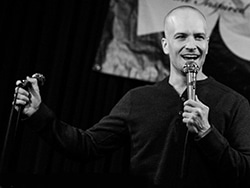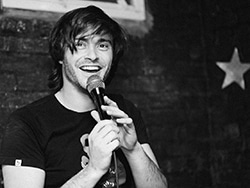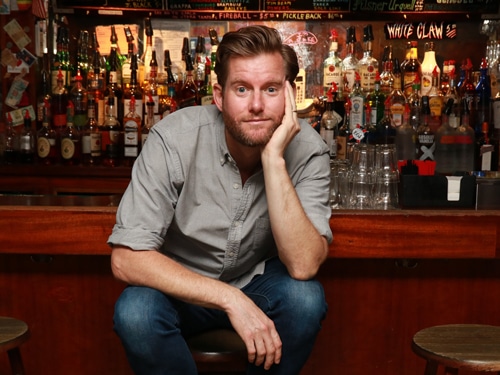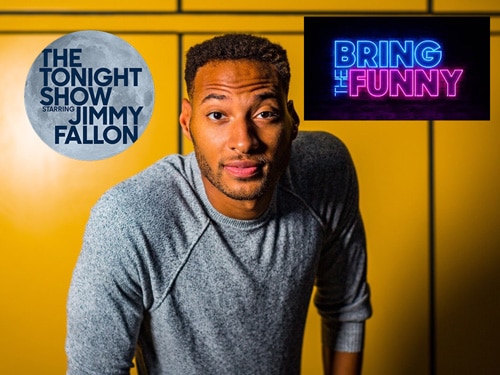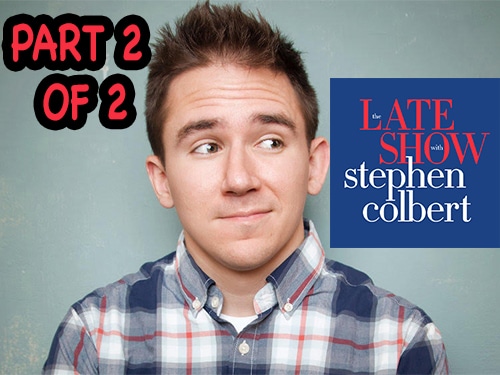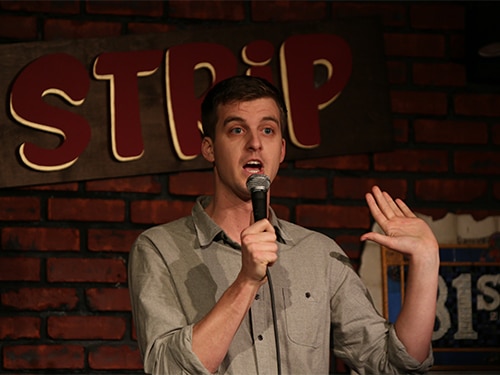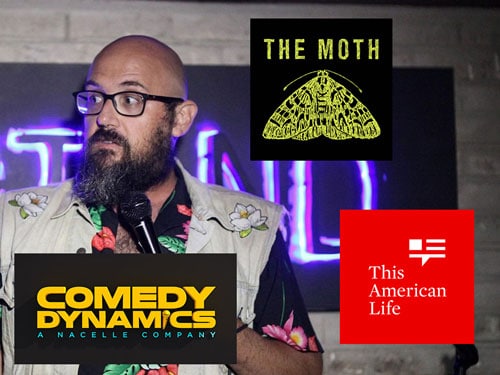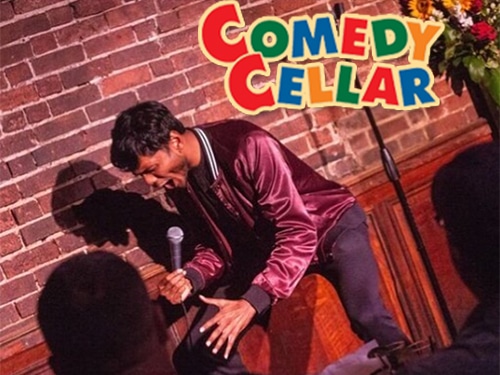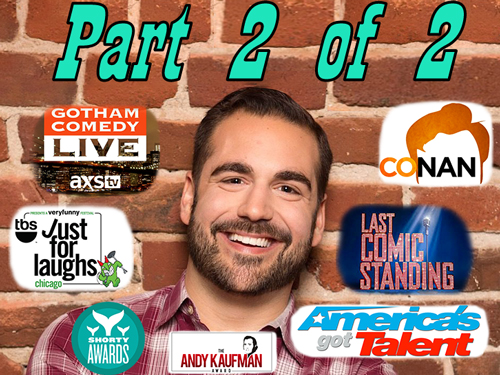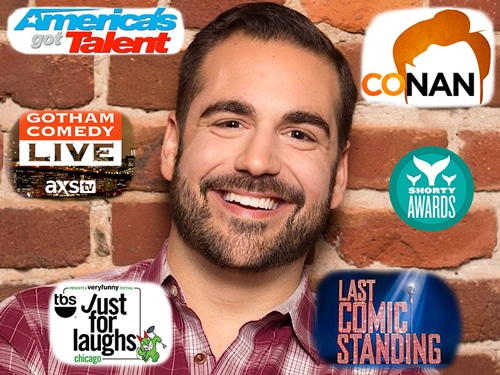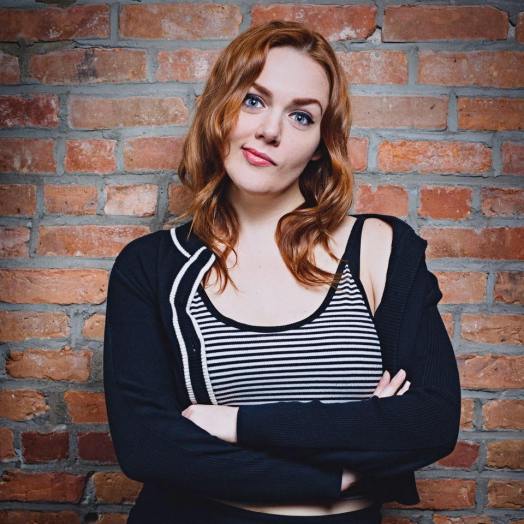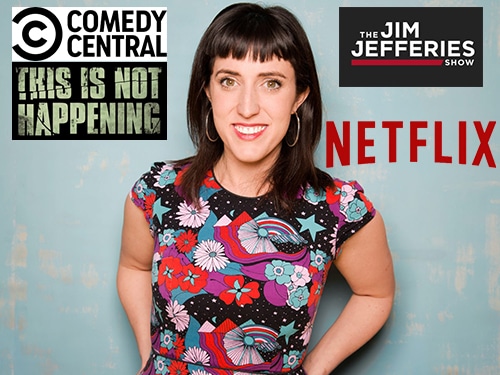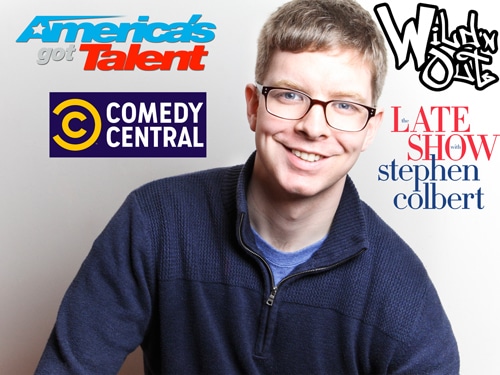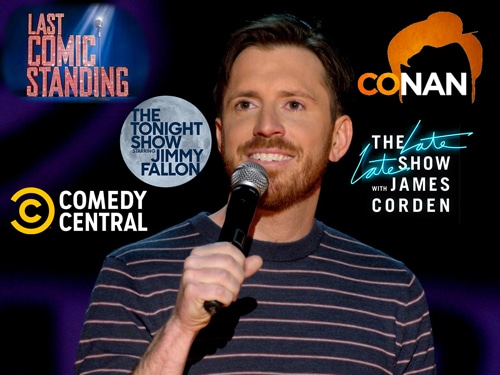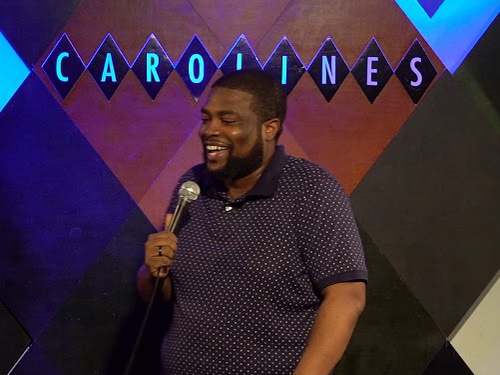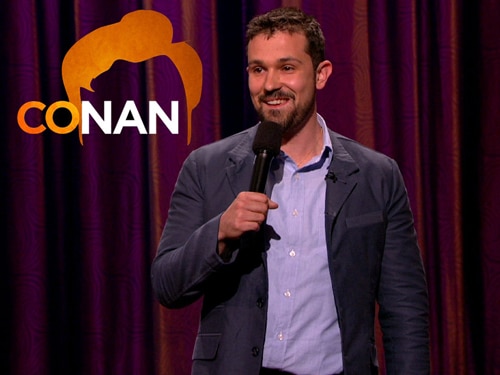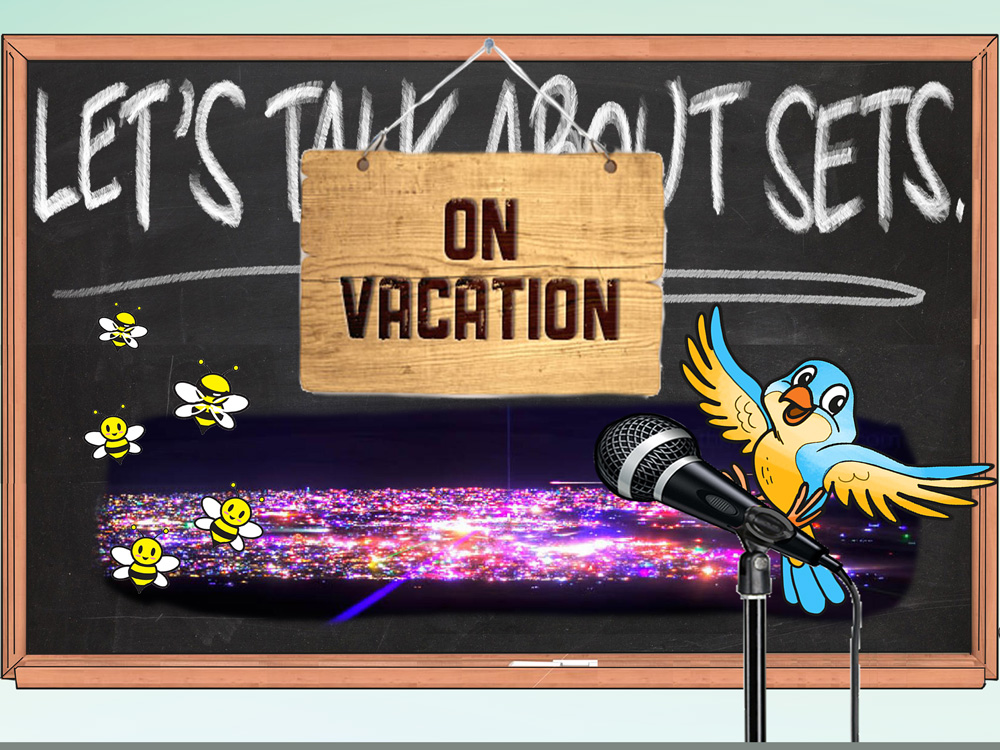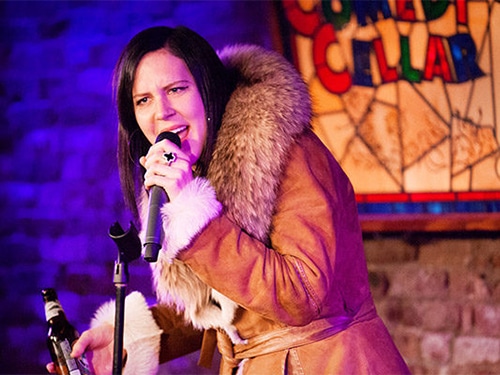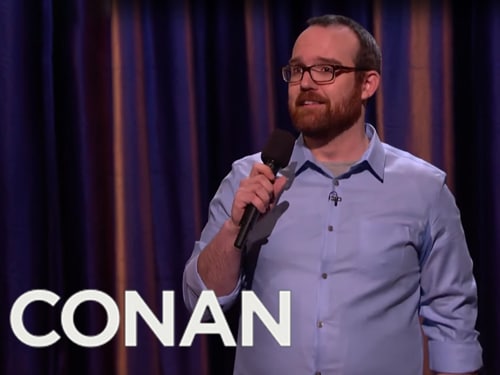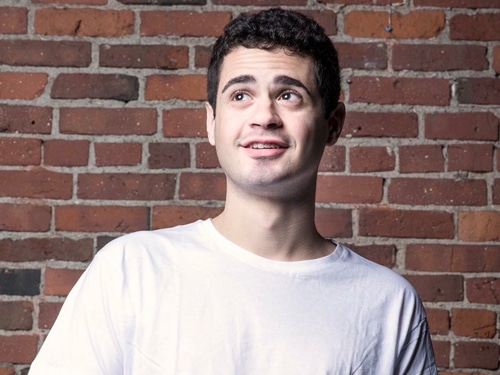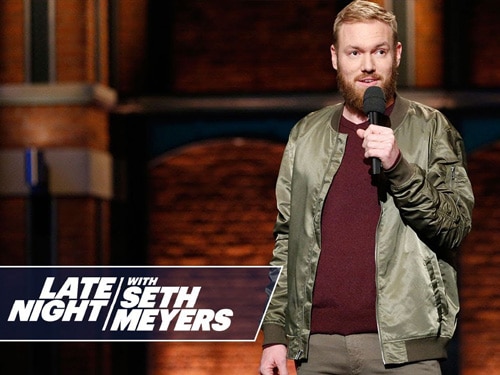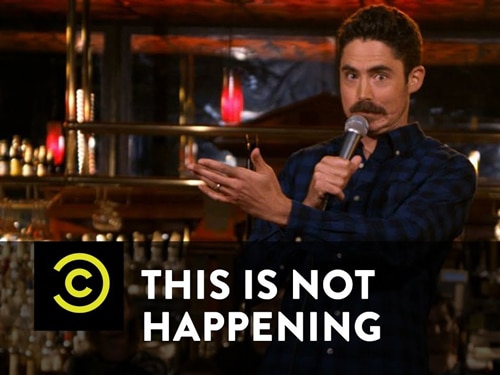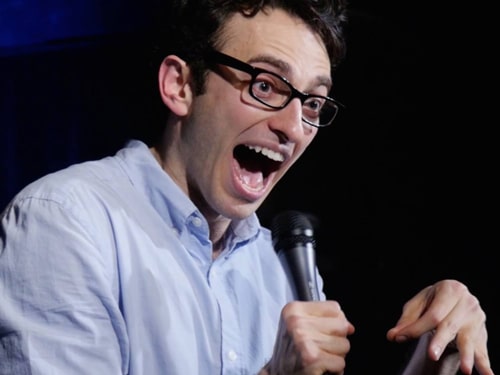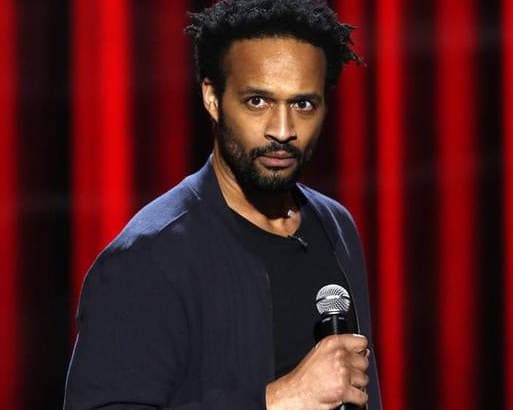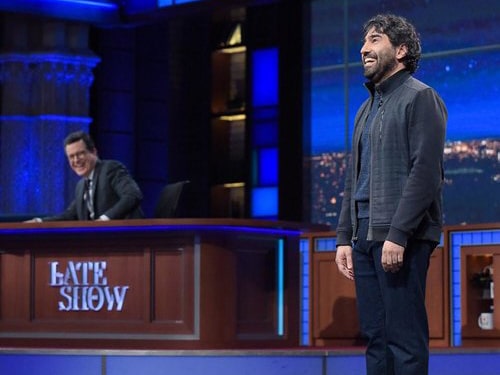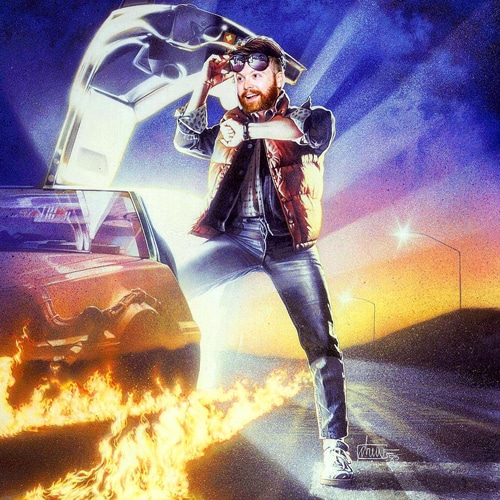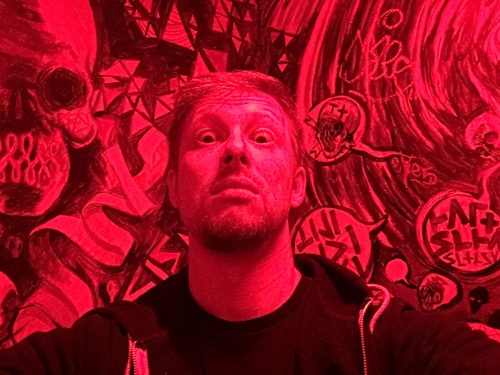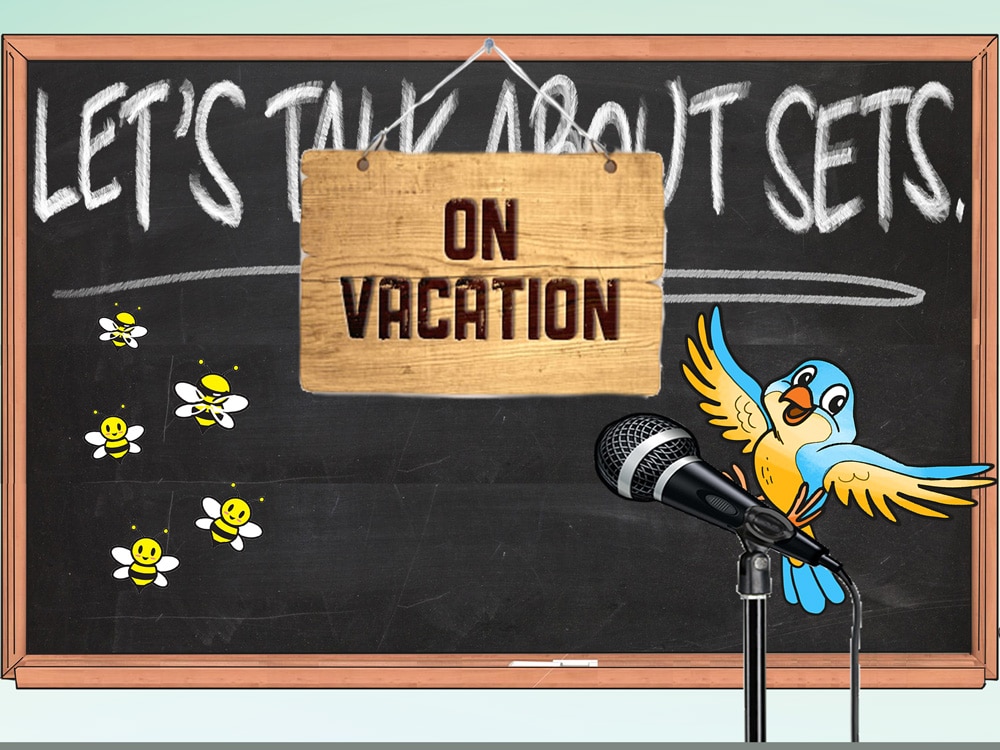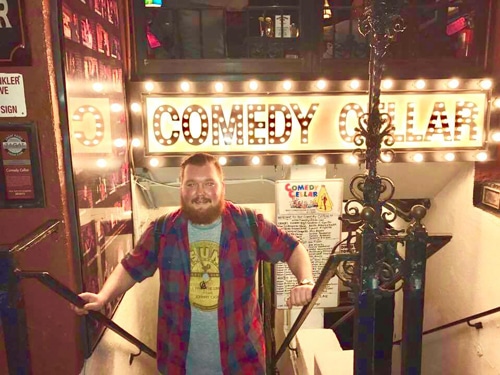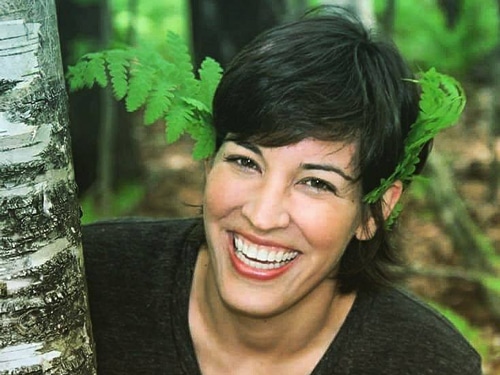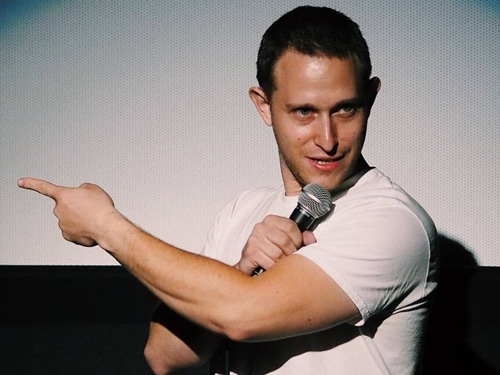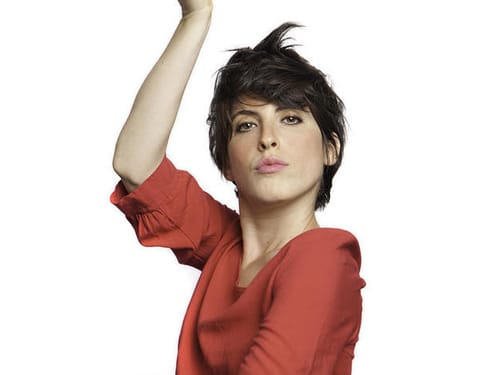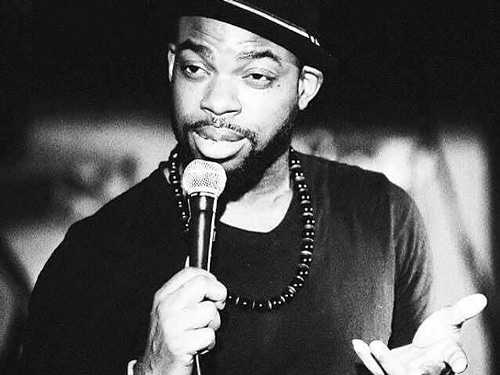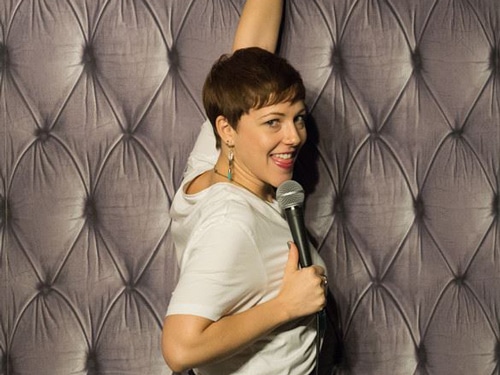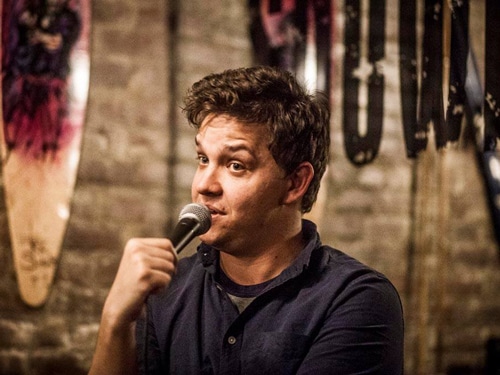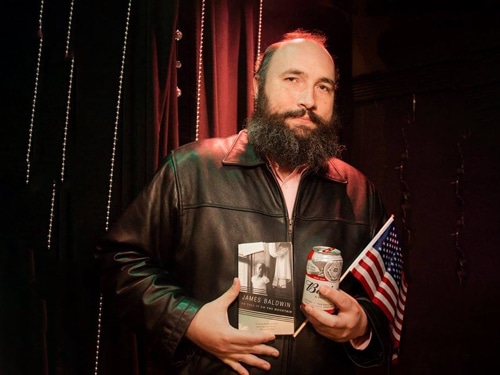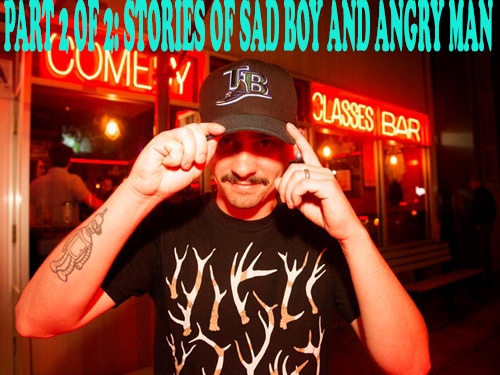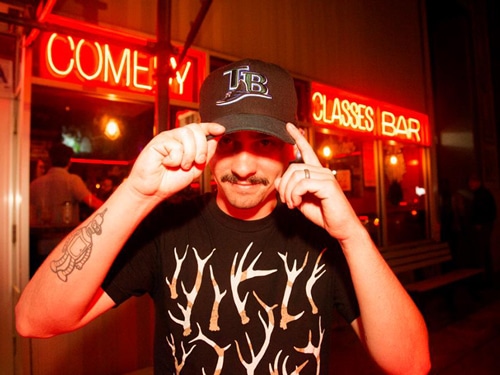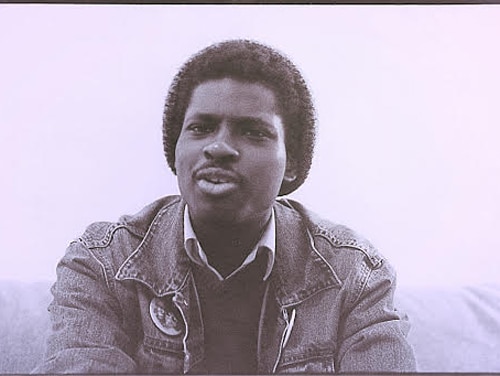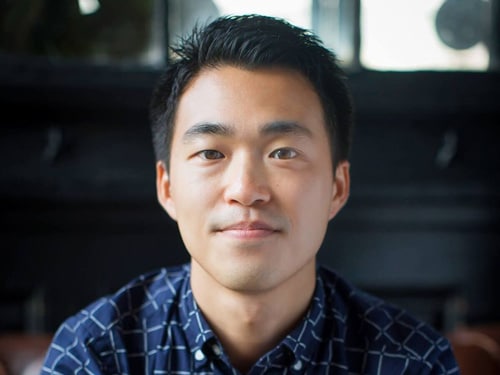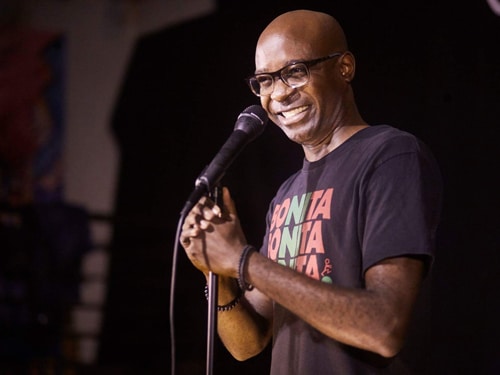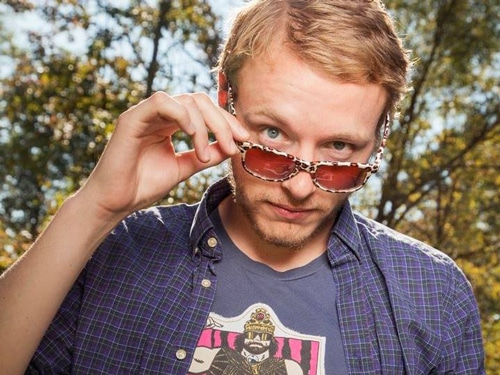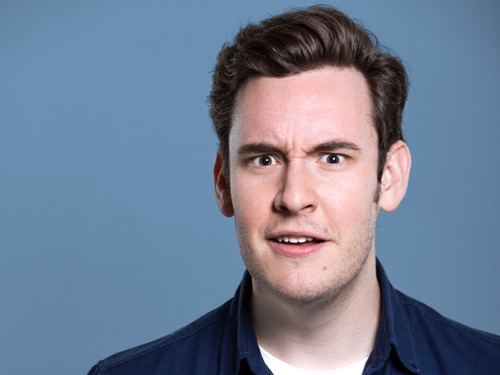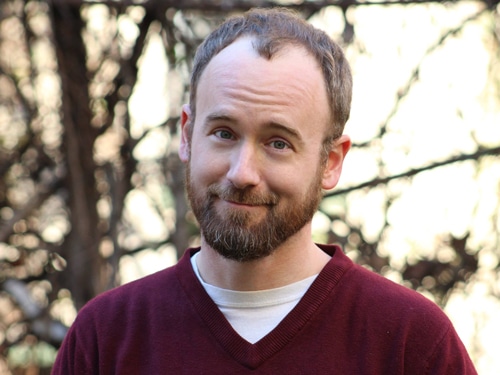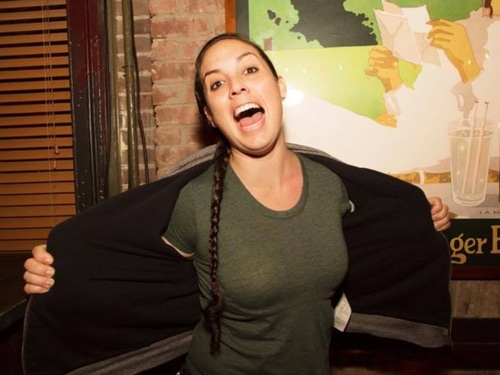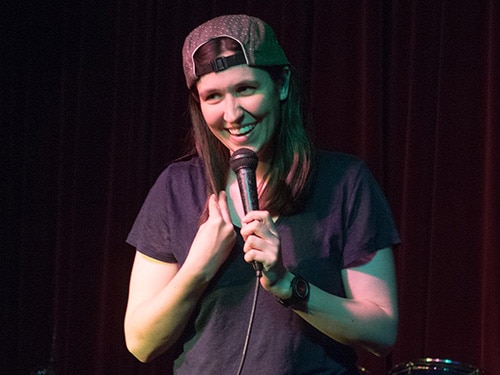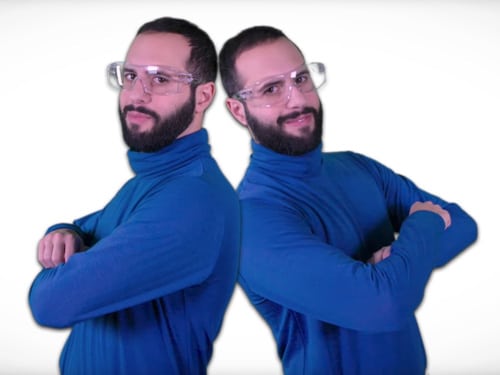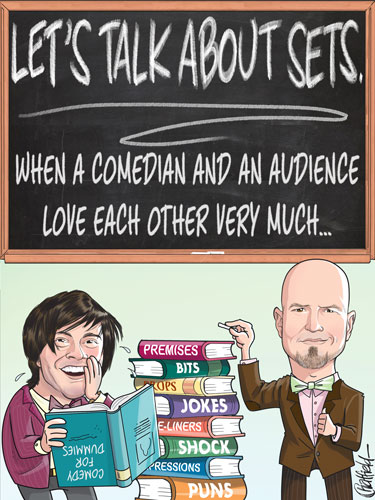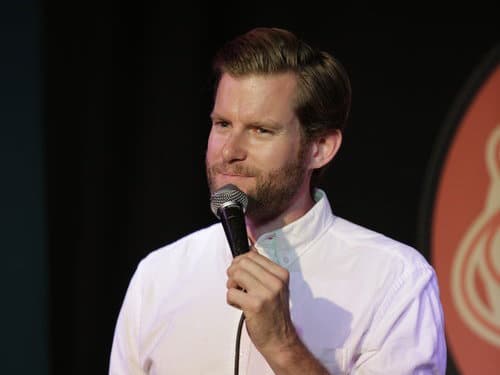
The delightful charm monster, Patrick Holbert, joins us to pick away at PAIN in stand-up comedy. We talk about how pain is the source of much of stand-up, both physical and emotional, and how usually the audience needs to know that the pain is ultimately “ok” in order to laugh. We cover generational pain, the occupational hazards of talking about pain, how to refocus personal pain onto a “shared” experience rather than just making it about you, and how Patrick went about talking about his painful experiences the first time. It’s a fun talk with old friends about a major element of comedy as a whole, and stand-up in particular, which we trace through a few key bits from Patrick’s own material and a seminal late night set by Gary Gulman.
The “illustrious” Jay Jurden gayly talks about gay humor and also humor about gayness in this episode where we examine the relationship between stand-up comedy, homosexuality, and homophobia, tracing a path from Richard Pryor to the present.
The Daily Show’s Roy Wood Jr. examines MORALITY in the context of stand-up comedy and gives real advice to young comics. Some of the best parts of the interview are at the end where we talk about the road, how Roy worked the system to get ahead, the way he organizes his material, and when gives advice to inexperienced comics.
In this second part of our CLEAN comedy interview of the pathologically nice Steven Rogers, we jump right into great material. We listen, laugh, and geek out over it through the lens of everything we explored about clean comedy in part one, so if you haven’t listened to the first installment, do that now. The bits we picked are fantastic–you’ll get some legendary Ray Romano, a taste of the genius Finish comic, Ismo Leikola, and some early hilarity from the brilliant buffoon that is Nate Bargatze. And we listen to Steven’s appearance on the The Late Show with Stephen Colbert! The episode touches on about how clean comedians get creative with curse-substitutes, how clean can be just making the audience fill in the filth themselves, “I know I look like” jokes, clean comedy and irony, logical absurdity, ya know, more things.
It’s hard to say whether Steven Rogers is nicer than he is funny or vice-a-versa, but with Stephen Colbert and Brian Regan giving him their official thumbs up, the formula works. Steven will hate this description, but he’s so neighborly, let’s call him stand-up’s young Mr. Rogers. As such, Mr. Rogers, Jr., joins us to discuss CLEAN as it relates to stand-up comedy, and we get some great insights as Steven shares his experiences of opening for Brian Regan and doing The Late Show with Stephen Colbert.
The way-too-likable, philosophically funny comic, Bret Raybould, explores the role of PRESENCE in stand-up from a makeshift recording studio inside Bret’s private plane. We break this topic down into “being present” and “stage presence”, touching on the stages of learning, flow state, body language, not giving a fuck, and knowing your act. Bret tells us how dealt successfully with following SNL’s Leslie Jones after she brought down the house. We dig into these aspects of presence and a lot more via bits by Brody Stevens, Patrice O’Neal, and Dane Cook. All this while we eat gold-crusted caviar off the backs of Bret’s devoted team of silent manservants.
The loquacious, award-winning raconteur and NYC stand-up comic, Jeff Simmermon, hopped on the mic for the show’s second foray into COMEDIC STORYTELLING using the principles he has taught and written about. This episode features his own published material and a story by Gastor Almonte from Comedy Central’s “This Is Not Happening”
Former NYC comedy wunderkind, now a full grown rocket-to-the-top funny manchild, Usama Siddiquee, returns to the show to explore the central pillar of laughter, CONTRAST, through killer bits by Nate Bargatze, Andrew Schulz, and Demetri Martin.
Undeniably funny, whitely awkward Geoffrey Asmus joins us to explore THE SETUP in stand-up comedy. Like most things in life, most of the work goes into setting up. If the punchline is the slide, and the setup is the stairs to the top. What is a setup? How can you rework a setup to fix a joke? And even more comedy nerd questions! We also have a great time listening to and frog-dissecting material from two opposite ends of the stand-up spectrum: Rodney Dangerfield and Ari Shaffir.
Harrison Greenbaum shows how he actually applies all his theories from part 1 of JOKE THEORY to his stand-up writing and performance. We go step-by-step through some of his best material, laughing and geeking out the whole way. It’s fucking awesome, so just listen to it. But make sure you’ve heard part 1 first, ok? (I’m so cranky, I’ve been working through technical fuckery on this second half for days.)
The magically funny, super accomplished, and hyper-analytical Comedy Cellar comic, Harrison Greenbaum, delivers a masterclass on JOKE THEORY! He enthusiastically shares his favorite joke theories he’s learned from others, and he generously outlines his own original theories. These are, truly, some of the best and most actionable approaches to jokes we’ve ever heard!
Nationally touring, Brooklyn based comic Brian Enck examines COURAGE in stand-up comedy. It takes courage to start and to keep going. It takes courages to speak your “truth” or to speak candidly about your flaws, mistakes, or personal weirdness. It takes courage to look the fool. Yet it’s that vulnerability that can yield some of the most powerfully funny comedy experiences. What are some tricks performers use to get the courage to act despite those fears? We cover this and a lot more via bits by Dave Chappelle, Tig Nataro, Brian Enck, and Jeff McBride.
Newly-minted Netflix “specialist” Kate Willett gets down and dirty with us on stand-up ANECDOTES. Anecdotes are distinct from storytelling, usually lacking the storytelling framework–beginning, middle, and end. They’re “pointless.” There’s no emotional journey. Lives are not changed by an anecdotal incident. Yet these flimsy, insubstantial retellings of inconsequential events are the backbone of a lot of the best stand-up comedy. We explore this and more via bits by Brian Regan, Maria Bamford, and Kate herself.
Jacob Williams (MTV’s Wild ‘N Out, Colbert, America’s Got Talent, & a lot more) KILLED it in this episode! We absolutely could not stay on topic, and so what? This conversation was UNDENIABLY funny! Between all the goofing around, we hit every angle we could think of on SELF-DEPRECATION in stand-up comedy via bits by Adam Sandler, Demetri Martin, Tom Segura, David Cross, and Jacob Williams himself.
Fresh from a set on the Late Late Show with James Corden and just two days after dropping his new Comedy Central Records album, “Innocence,” the highly credited and ridiculously funny Joe Zimmerman graced us with a wide-ranging discussion loosely focused on PACING in stand-up comedy. Also of note, Joe responded to John Mulaney’s fervent public wish that he could steal one of Joe’s bits.
Award-winning comedy writer and stand-up comic, Dan Perlman, shares his perspective on PERSPECTIVE in stand-up comedy by geeking out with us on great material from Roy Wood Jr., Joe Rogan, and John Mulaney.
Carolines Breakout Artist Series headliner, Norlex Belma, breaks down THE ROOM in stand-up comedy. When comedians talk about the room, they’re referring to a lot of performance parameters: the feel of the crowd, the kind of venue, the demographics, the kind of comedy scene, and the setup of the performance space itself, plus a lot about how he constructed his hour. Lots of comedy craft!
Conan alum Mike Recine is a national headliner & a hysterically twisted joke writer–the perfect guy to explore WRONG comedy. This hilariously earnest chat covers bits that are morally “wrong,” factually incorrect, or illogical using material from Dave Chappelle, Patrice O’Neal, Anthony Jeselnik, & Mike Recine himself.
Andrea Allan, an aggressive, crazy, “wild animal” of a comedian, joins us to chart COMMITMENT through stand-up comedy via bits by Doug Stanhope, Eddie Murphy, and Kurt Metzger. We have a blast in this very dirty episode exploring commitment to character, to tone, to material, to act outs, and to oneself.
Happy 4th! Here’s a GREAT mini-episode featuring the prolific linguistic genius, Myq Kaplan. Myq hilariously shares how he approaches presenting a minority opinion; and he gives in-depth explanations on both his process and attitude for generating new material.
Nationally touring stand-up comedian & Aqua Teen Hunger Force alum, Andy Sandford, revs his writer’s Prius to taut WORD ECONOMY. Levity is brevity, but word economy means more than that. We laugh and pick apart some great bits by Jeff Caldwell, Ellen Degeneres, and Steven Wright.
Boston-forged comic Luke Touma tackles HECKLERS to explore why people heckle, different kinds of hecklers, and how to deal with them. What specific tactics, tricks, and attitudes work best? We talk about the instigator, the attention whore, the homophobe, the hater, the moral authority, the fact checker, and more. We share comedy war stories and have a blast listening to explosive heckler take-downs by Chris D’Elia, Joe Klocek, and Arj Barker. This episode was fun as fuck, and fuck is FUN.
The all-too-likable and contagiously funny comic, Kenny DeForest (Seth Meyers, HBO’s Crashing), joins us to discuss LIKABILITY. What makes a comic likable or not? How does that relate to authenticity, status, and confidence? And some great stuff from Patrice O’Neal, Eminem (!?), and Kenny himself.
The brilliant storyteller and comedian Doug Smith explores the use of TRAGEDY in stand-up with us through a seminal bit by Patton Oswalt and a story Doug recently performed on Comedy Central’s “This Is Not Happening.”
Storyteller extraordinaire Kaytlin Bailey opens the legs of her life to investigate the role of TRUTH in stand-up comedy. What kinds of truth are there, and what is the role of the comedian as it relates to telling the truth? We explore this and a lot more via bits by Ali Wong, Chris Rock, and Kaytlin herself.
Multi-talented, very funny and passionately neurotic Gianmarco Soresi explores ANGER in stand-up. All three half-Jewish white fellas share temper problems, so we talk tantrums, yelling, when anger goes wrong, and why impotent rage is so damn funny. How do you make things ok so people can laugh while you’re expressing genuine anger? We laugh and analyze through bits by four VERY different comedic anger styles: Bill Burr, Sam Kinison, John Mulaney, and Mary Mack.
The hugely funny & big-hearted Cyrus McQueen boomed out his theories on CHARACTERS in stand-up. The Last Comic Standing alum jumped in and out of character throughout the episode as we discussed what a character is in stand-up, how characters enhance a performance, and a lot more.
This is part 2 of the TABOO recording. If you haven’t listened to part 1, go do that first. In this part, we talk about Tristan’s history of being bullied and (sort of?) bullying and how that influenced his dark sense of humor. We also listen to him drone on about the unique perspective and skillset of his improv background, failing with fun, and the function of joy in comedy.
Absurdly dark Tristan Smith wades into the nasty, deep end of the comedy pool: TABOO feat.This is one part craft and comedy theory and one part societal debate, all marinated in total fuckery. We dive right in with some David Cross, followed by the great “Kramer Meltdown,” Dave Chappelle’s response to it, and then George Carlin’s seminal bit from the 90’s about taboo words and their context. And we argue the bejesus out it all.
The very accomplished, always funny “edgy joke slinger,” Mark Normand shares his theories on joke writing, his writing and rehearsal processes, and goes on a couple epic rants on the state of comedy today. This episode is THE SHIT!!!
Gene Getman tackles IRREVERENCE in stand-up comedy by messing with the hosts and listening to bits by Doug Stanhope, Chad Daniels, and Martin Urbano. We think it’s our funniest episode yet.
The brilliantly prolific Comedy Cellar regular, Dan LaMorte, nails it in this episode on MENTAL HEALTH in stand-up. It felt real, it felt deep, and it’s damn funny. He’s got some awesome tips to share and a helluva tale to tell. Car crashes, brain injury, deaths, break-ups, and a mental institution! And we tear open jokes by Marc Maron and Patton Oswalt.
The charmingly silly, head-a-shavin’, nationally-tourin’ stand-up comedian, Carmen Lagala, joined us for a timely chat about GENDER in stand-up comedy. We cover a lot of ground with some killer bits by Bill Burr, Liza Treyger, and Carmen herself.
Nationally touring comedian & social media sensation, Brett Druck, explores “REINTERPRETATION” via bits by TJ Miller, Hannibal Buress, & Dane Cook. I was laughing out loud editing it, and I was the one running the recording session! (this is Jeff talking, obviously)
Love goddess of stand-up comedy, Abby Feldman, descends to share her “embrace and accept” approach to stand-up and life. Want some depth with your commute? We’ve got it for ya, with clips from Bill Hicks, Marc Maron, and Bo Burnham. This one is amazing!
The dark and bubbly NYC comedian, Camille Theobald, spends her evening with us laughing at bits by Louis CK, Sarah Silverman, and Tom Segura. We playfully examine the role played by TENSION & RELEASE in stand-up performance and writing.
Comic Sam Evans explores “THAT’S A BIT,” the often maddening process to go from fresh idea to working joke via bits by Gary Gulman, Tom Papa, and Eric Andre. There’s great stuff here about not chickening out on an idea, when to give up on one, and the importance of collaboration. It’s definitely a craft-heavy episode with some dynamite comedy bits.
Genius joke writer and stand up comic, Jay Welch, plumbs the depths of the exquisite laughter born of HONEST SADNESS. We explore these ideas in a sometimes funny, sometimes somber, but always interesting episode with some amazingly, touchingly funny stand-up material that deals with envy, addiction, and death. Funny stuff, right? Actually, yes.
Comedian Jon Newman snorkels through the choppy waters of “CHALLENGING PREMISES” via bits by Jerrod Carmichael, Bill Burr, and Chris Rock. What constitutes a challenging premise? Taboo? Complexity? And what devices do comics use to bring audiences into mental territory they ordinarily avoid or find too complex to be funny? Let’s do this!
Comedic storyteller Mike Guild hilariously breaks down two comedic stories by the hosts in a deeply personal “part 2” on comedic storytelling. It’s funny, poignant, and informative. But listen to part 1 first!
Master comedic storyteller, Mike Guild, displays his zest for the craft by walking the hosts through a bit by Dave Chappelle and by telling a story live on the podcast! There was so much here that it needed two parts.
We’ve got more episodes on the way, but it’s summer. Weddings, relationships, shows, etc. In the meantime, have a listen to a comedian Sandip Sen, Harrison Tweed, and Jeff McBride just geek the fuck out about the sadly deceased comedy genius, Greg Giraldo. We listen to his closing bit, called “Happy Birfday” from his 2009 album “Midlife Vices.” We’re so giddy over it that we don’t even have a decent analysis between three of us. Then we listen to one little joke from George Carlin that shows what you can make funny once you’ve been doing it for four decades.
CW Headley is a very funny person whose hilarious perspective is informed by a need for reassurance to which anyone can relate, a universal human need he renders funny by its specific CW intensity. In this episode, all three comedians lay bare their underlying primary insecurities as they explore how “relatability” functions in stand-up.
Fantastic stand up comic and writer Peter Revello is the perfect guest to theorize about dark, black humor. And that’s what this episode is all about–how and why we have a hearty laugh at bad things. Apropos to Peter’s philosophy background, this episode lends itself to exploratory debate; so if you love nerding out about how humor works, you’ll love this.
NYC comedian, Fumi Abe, chops it up with the hosts to take apart a heavy-duty tool of the craft of stand-up, “visualization.” Using his trademark wit and insight, he helps us investigate how the greats make movies in our heads. This episode is on point with side-bruising bit selections from Nate Bargatze, Maria Bamford, Dave Chappelle, and Daniel Tosh.
Khalid Rahmaan is, in his own words, a terrible driver, a wonderful snuggler, and a Brooklyn-based standup comedian. His hysterically intelligent comedy weaves elements of politics, race, and family; it’s talking about real things in a funny way that lights his comedic fire. Oh, and he HATES clapter. This episode is dedicated to exploring comedy influences.
Casey James Salengo is a New York stand up comic, writer, and actor. He’s a lovably funny guy who likes things simple and hilariously acknowledges his refusal to learn from his life experience. He is the very essence is laissez-faire, and it really works for him. He’s a master of carefully selecting the right words to compliment his theatrical comedy style, and some very good things have come his way recently. So this episode explores two themes: “word choice” in material and “opportunities” in show business.
Jason Chatfield is a standup comedian, voice-over actor, cartoonist, and illustrator based out of New York City. The scope of his talents is irritatingly impressive. He made his name in his native Australia as a political comedian, but since emigrating to the USA, he’s “closeted” his politics temporarily for the good of his career. Since he’s still a very political person, this episode is dedicated to political comedy, a theme the podcast is sure to revisit many times. That podcast artwork? Yeah. Jason did it. He’s kind of a badass.
Dave Columbo magically pulls off fast, smart comedy as a goofy, nerdy everyman. His writing is absolutely on point; his jokes are so well-written they could even stand on their own, without him, like a criminally dirty pair of jeans. Above all, he knows how to be a silly billy, so this episode is dedicated to silliness.
Caitlin Peluffo is a machine gun of audience-loving funny, a “lovable loose cannon.” She’s a Wonder Woman at working with audience energy, so this episode is dedicated to “ENERGY.” Caitlin is so funny and endearing that the three comedians laughed and joked their way through this entire recording.
Ashley Gavin is a robot — a high-energy, high impact, hysterically funny, lesbian robot. Since some of her best jokes only work once audience gets to know her, we dedicated this episode to “Persona Bits.” She is a nationally touring comedian, and her comedy has been featured on FOX, AXS TV, SeeSo, and SiriusXM Comedy.
Brandon Scott Wolf is wonderfully absurd, both personally and professionally; and so this episode is dedicated to absurdist stand-up comedy. What is absurdism, and why is it rare in stand-up? The comedians couldn’t stop laughing at their collective inanity, so this one is BONUSLY long. And it’s totally worth it.
Usama Siddiquee is a standup comic and light-speed comedy host. His high-energy comedy style and turbo-riffing can be seen all over the U.S., and he’s a “made man” at New York Comedy Club in Manhattan. This episode is frenetic and hilarious, frothing with the fervor all three comics share for stand up and peppered with philosophies of success.
Drew Morgan perfectly kicks off the show with an episode focused on openers. What are they? What are they supposed to communicate? And why do comedians obsess over them? Drew shares his theories and a few examples, and then we dissect a few of the greats.
This is the inaugural episode. Harrison said, “Dude, we should talk and stuff about stuff.” Jeff interpreted that to mean that the hosts should record an episode that explains who we are because, without the backdrop of our characters, Jeff seems like a real ass, despite actually being quite harmless. Then we talk about sets!
Jeff McBride and Sandip Sen hosted this early episode, and they couldn’t get over how clever Kevin’s abstract associations were in his bit, “The Boys From Brazil.” They talk about how long it can take to make those connections. They then joyfully tear down some Brian Regan and John Mulaney comedy gold.
Ben Rosenfeld joins Sandip Sen and Jeff McBride as they dig into work by George Carlin and David Cross. They also touch on writing material from outrage and working toward funny, through which Ben’s dark humor “shines” with incisive analysis about smart comedy, learning your style, and gently misanthropic perspective from his early years in Russia.
